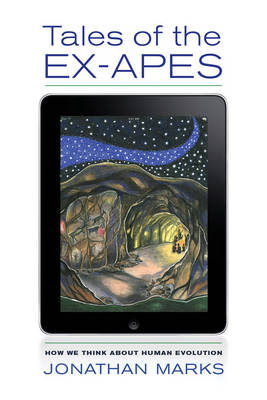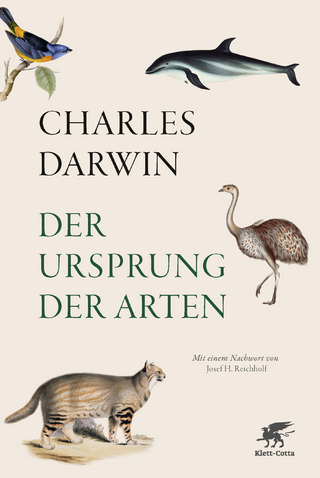
Tales of the Ex-Apes
How We Think about Human Evolution
Seiten
2015
University of California Press (Verlag)
978-0-520-28582-8 (ISBN)
University of California Press (Verlag)
978-0-520-28582-8 (ISBN)
What do we think about when we think about human evolution? This book explores our scientific narrative of human origins - the study of evolution - and examines its cultural elements and theoretical foundations.
What do we think about when we think about human evolution? With his characteristic wit and wisdom, anthropologist Jonathan Marks explores our scientific narrative of human origins-the study of evolution-and examines its cultural elements and theoretical foundations. In the process, he situates human evolution within a general anthropological framework and presents it as a special case of kinship and mythology. Tales of the Ex-Apes argues that human evolution has incorporated the emergence of social relations and cultural histories that are unprecedented in the apes and thus cannot be reduced to purely biological properties and processes. Marks shows that human evolution has involved the transformation from biological to biocultural evolution. Over tens of thousands of years, new social roles-notably spouse, father, in-laws, and grandparents-have co-evolved with new technologies and symbolic meanings to produce the human species, in the absence of significant biological evolution. We are biocultural creatures, Marks argues, fully comprehensible by recourse to neither our real ape ancestry nor our imaginary cultureless biology.
What do we think about when we think about human evolution? With his characteristic wit and wisdom, anthropologist Jonathan Marks explores our scientific narrative of human origins-the study of evolution-and examines its cultural elements and theoretical foundations. In the process, he situates human evolution within a general anthropological framework and presents it as a special case of kinship and mythology. Tales of the Ex-Apes argues that human evolution has incorporated the emergence of social relations and cultural histories that are unprecedented in the apes and thus cannot be reduced to purely biological properties and processes. Marks shows that human evolution has involved the transformation from biological to biocultural evolution. Over tens of thousands of years, new social roles-notably spouse, father, in-laws, and grandparents-have co-evolved with new technologies and symbolic meanings to produce the human species, in the absence of significant biological evolution. We are biocultural creatures, Marks argues, fully comprehensible by recourse to neither our real ape ancestry nor our imaginary cultureless biology.
Jonathan Marks is Professor of Anthropology at the University of North Carolina at Charlotte and the author of What It Means to Be 98% Chimpanzee and Why I Am Not a Scientist, both from UC Press.
Preface 1. Science 2. History and Morality 3. Evolutionary Concepts 4. How to Think about Evolution Non-reductively 5. How Our Ancestors Transgressed the Boundaries of Apehood 6. Human Evolution as Bio-cultural Evolution 7. Human Nature/Culture Notes Index
| Erscheint lt. Verlag | 2.10.2015 |
|---|---|
| Zusatzinfo | 4 b-w |
| Verlagsort | Berkerley |
| Sprache | englisch |
| Maße | 140 x 216 mm |
| Themenwelt | Naturwissenschaften ► Biologie ► Evolution |
| Sozialwissenschaften ► Ethnologie | |
| Sozialwissenschaften ► Soziologie | |
| ISBN-10 | 0-520-28582-4 / 0520285824 |
| ISBN-13 | 978-0-520-28582-8 / 9780520285828 |
| Zustand | Neuware |
| Haben Sie eine Frage zum Produkt? |
Mehr entdecken
aus dem Bereich
aus dem Bereich
Komplette Neuübersetzung. Mit einem Nachwort von Josef H. Reichholf.
Buch | Hardcover (2018)
Klett-Cotta (Verlag)
48,00 €
Wie die Vernichtung der Arten unser Überleben bedroht - Der …
Buch | Softcover (2023)
Penguin (Verlag)
15,00 €


